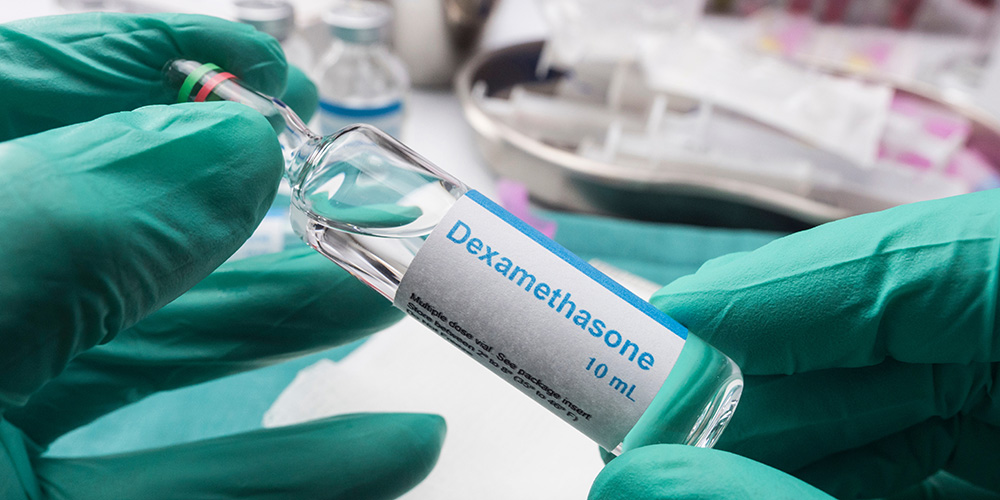Synthetic stress hormone dexamethasone could reduce breast cancer metastases
The drug dexamethasone supplements cancer treatments to alleviate side effects of chemotherapy such as nausea or inflammation. Researchers at the University of Basel have now discovered that it also fights metastases in certain types of breast cancer.
24 November 2025 | Angelika Jacobs
The active substance dexamethasone is a synthetic signaling substance with a similar effect to the body’s own stress hormone cortisol. A research group at the University of Basel has found evidence that this drug, which has been in use for a long time, could have a new, additional effect in certain treatment-resistant breast cancers.
Breast cancer of the “estrogen receptor-positive” (ER+ for short) subtype can usually be treated with anti-hormonal therapy. The target of this therapy is the estrogen receptor, which is hyperactive in these tumors and drives abnormal cell division. Hormone therapy uses drugs that deactivate or break down the estrogen receptor, thereby slowing the growth of cancer cells. However, this type of tumor sometimes forms metastases that no longer respond to hormone therapy.
Fewer metastases
A research team led by Professor Mohamed Bentires-Alj from the Department of Biomedicine at the University of Basel and the University Hospital Basel reports in the journal EMBO Molecular Medicine that dexamethasone can combat precisely these therapy-resistant metastases. In trials with mice with therapy-resistant ER+ tumors, dexamethasone reduced liver metastases and prolonged the animals’ survival.
Further analyses provided more detailed insights into how the drug achieves this effect: dexamethasone activates the glucocorticoid receptor. This, in turn, suppresses the production of the estrogen receptor. “As a result, the cancer cells lose the main driver of tumor growth,” explains Dr Madhuri Manivannan, lead author of the study.
In addition to the trials with mice, the researchers also used patient-derived tumor tissue grown in the laboratory known as organoids. Here, they also observed that the amount of estrogen receptor decreased with the addition of dexamethasone.
New benefits for proven medication
“Dexamethasone could potentially directly support certain breast cancer therapies, not just as a concomitant treatment for nausea and inflammation,” says Dr Charly Jehanno, who led the research project. “However, these results, particularly the loss of estrogen receptor, need now to be confirmed directly in patients with breast cancer”. If the metastasis-inhibiting effect proves to be true, this long-established drug could potentially be repurposed.
However, the researchers stress that dexamethasone would not be suitable for all breast cancer patients. “Dexamethasone is an example of how the same drug can have very different effects on the course of the disease in different forms of breast cancer,” says Professor Mohamed Bentires-Alj. In 2019, his team reported in the journal Nature that dexamethasone actually promotes metastases in another type of breast cancer (triple-negative).
Original publication
Madhuri Manivannan et al.
Activated Glucocorticoid Receptor is an Estrogen Receptor Silencer in ER+ metastatic breast cancer
EMBO Molecular Medicine (2025), doi: 10.1038/s44321-025-00342-z


